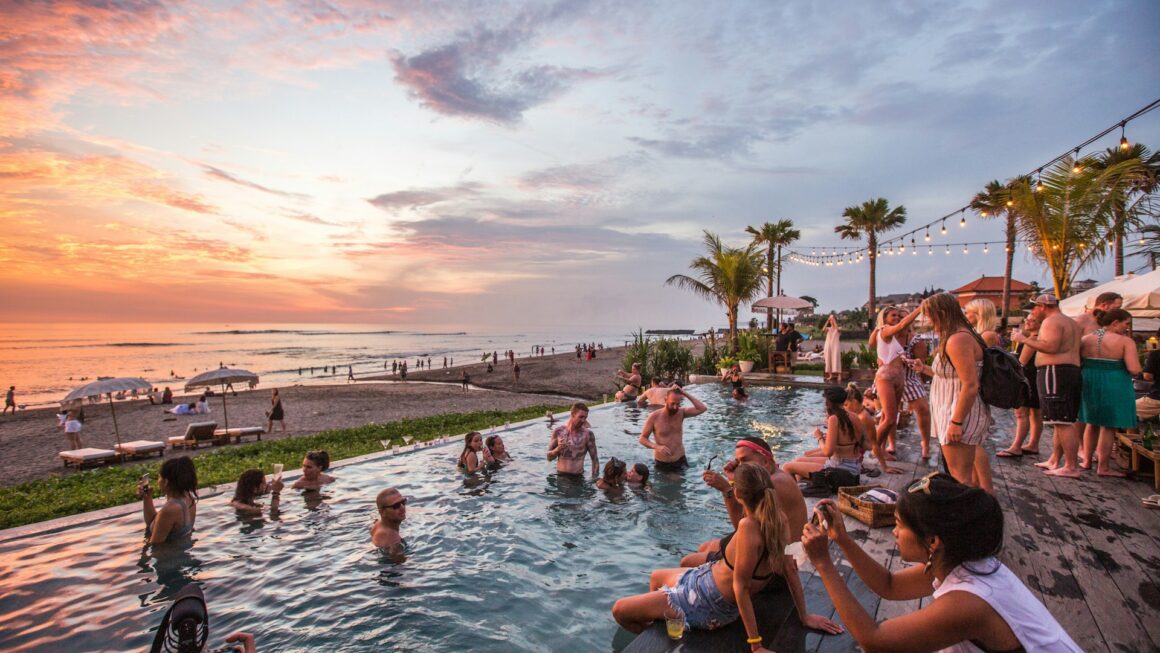Bali is widely regarded as a paradisiacal destination. However, its once carefree ambiance is undergoing changes. In February, Bali’s government established a dedicated tourism police force in response to unruly tourists’ conduct.
The newly formed unit has dealt with various issues, including intoxicated visitors and individuals resorting to begging.
“It appears they’ve exhausted their resources and resorted to begging; we’ve encountered such cases,” commented Dewa Nyoman Rai Dharmadi, leader of Bali’s Civil Service Police Unit. “We occasionally see local disturbances at tourist sites, and our goal is to maintain a welcoming environment for all.”
The island has deployed over 70 officers across well-known areas including Canggu, Seminyak, and Kuta. These officers also promote respectful attire in the Hindu temples of Bali, Indonesia’s unique Hindu region, ensuring visitors wear traditional sashes. “Often, tourists unknowingly break sacred rules due to lack of awareness,” Dharmadi noted.
Despite efforts to regulate tourism, discontent remains. Former Governor Wayan Koster proposed limiting the number of visitors last May due to disruptive behaviors, though the plan was not implemented. Bali continues to wrestle with the challenges of being Indonesia’s prime tourist spot.
The tourism police are now supported by “tourist companion dogs.” In the past year, Bali has deported 340 foreigners for various infractions, a significant increase from the previous year. Issues ranged from overstaying visas to inappropriate conduct in holy sites.
Recently, incidents including the arrest of tourists from the U.S. and Bermuda following a viral altercation in a salon, and the arrest of three Mexicans implicated in a robbery, highlight ongoing concerns.
Surging tourists, what’s next?
In 2021, the island saw only 51 foreign visitors, a stark contrast to the 6.3 million in 2019. Last year, visitors nearly reached 5.3 million, surpassing the 4.5 million goal. This year, the target has been set at seven million by Indonesia’s Minister of Tourism and Creative Economy, Sandiaga Uno, as reported by Bali tourism chief Tjok Bagus Pemayun.
As tourism in Bali rebounds strongly, one industry, other than rental real estate, is experiencing a parallel rise in demand: the tattoo industry. The island’s unique cultural backdrop and vibrant artistic scene have made Bali tattoo studios a popular destination for tourists and enthusiasts seeking to commemorate their trips with permanent art.
Bali tattoo artists are renowned for their skill and creativity, often blending traditional Balinese designs with modern tattoo techniques. This has turned Bali into a hub for tattoo tourism, with studios scattered across key tourist locales like Kuta, Seminyak, and Ubud. These studios offer a vast range of styles and adhere to high hygiene and safety standards.
The influx of tourists has also prompted increased regulations surrounding the tattoo industry in Bali. The local government has been vigilant in ensuring that tattoo studios are licensed and comply with health regulations to maintain the island’s reputation as a safe destination for tattooing. This regulatory oversight is crucial, as the rise in tourists also increases the responsibility of service providers to uphold the highest standards.
Moreover, the burgeoning tattoo scene in Bali reflects a larger trend in global travel where visitors seek more meaningful and personalized experiences. A tattoo from Bali is often viewed not just as a souvenir but as a lasting connection to the island’s rich cultural tapestry.



